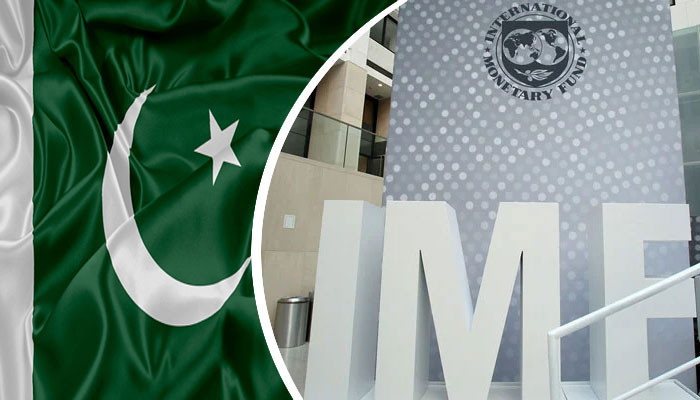- SCBA says parliament violated the precept of entry to justice.
- Submits 6-page response on SC (Follow & Process) Act 2023.
- Says laws will create many issues in prime courtroom working.
ISLAMABAD: The Supreme Courtroom Bar Affiliation (SCBA) on Tuesday in its response to the SC (Follow and Process) Act 2023 informed the highest courtroom that the legislation was a “negation of the Structure” and is “inflicting unconstitutional inroads into the unbiased judicial features” of the apex courtroom.
The SCBA submitted its response after petitioners within the case have been directed by a full courtroom shaped by Chief Justice of Pakistan (CJP) Qazi Faez Isa to submit their written replies by September 25. The highest legal professionals’ physique mentioned it submitted the response a day late as a consequence of “electrical energy failing”.
In its six-page written reply, the SCBA acknowledged that Part 2 of the legislation directs the Supreme Courtroom to kind a three-member committee — comprising the CJP and two most senior judges — for the structure of benches a dictation to the parliament and deprives the CJP of his “constitutional mandate”.
It added that the CJP’s rights have been being disadvantaged as he was being stopped from managing the Supreme Courtroom affairs “as an unbiased organ of the judiciary” and bench formation.
The physique views that Part 2 of the legislation “clearly encroaches upon the judicial area” and is towards the “independence of the judiciary”.
‘Part Three violates precept of trichotomy’
The SCBA additionally contended that Part Three of the legislation “dictates the manners” by which the unique jurisdiction shall be exercised by the Supreme Courtroom whereas coping with Article 184(3). It added that curtailment of decision-making was “declared encroachment within the area of independence of the judiciary”.
“The laws certainly will create many issues within the working and resolution making of Supreme Courtroom and also will trigger points/issues within the enforcement of basic rights of public significance,” contends the legal professionals’ physique.
Language of legislation ‘listing in nature’
The SCBA has additionally contended the language used within the legislation is “listing” and parliament, through the legislation, was commanding the Supreme Courtroom on “managing” its affairs together with judicial features
“It was negation of the Structure in addition to inflicting unconstitutional inroads into the unbiased judicial features of the Supreme Courtroom of Pakistan,” the SCBA has acknowledged.
‘Parliament lacked legislative competence’
Moreover, the SCBA has contended that giving the appropriate of attraction can solely be finished by way of a constitutional modification.
“Parliament didn’t possess the two/Three majority when Act XVII of 2023 was handed. Parliament lacked legislative competence,” the highest bar affiliation mentioned. It additional contended the legislation “person-specific, purpose-specific and time-specific”.
The physique additionally urged the apex courtroom to hunt a “report of parliamentary proceedings” on the legislation to look at the “constitutionality and the intention of legislators”.
The physique additionally contended that the change of counsel supplied within the legislation wouldn’t serve the “ends of justice neither will probably be helpful”. It additionally added that making it liable on the SC to repair pressing petitions for listening to inside 14 days beneath part 7 of the legislation was an “encroachment within the administration of Supreme Courtroom of Pakistan”.
‘Part eight bulldozes entire judicial system’
The SCBA additionally contends that Part eight of the legislation “bulldozed the entire judicial system and its working” because it states that “the provisions of this Act shall have impact however something contained in every other legislation, guidelines or laws in the meanwhile in pressure or judgment of any Courtroom together with the Supreme Courtroom and a Excessive Courtroom”.
“The availability clearly was enacted for the advantage of any or many as desired and it additionally quantities to negation of the Structure of Pakistan and its provision coping with the topic in challenge. If part eight stays on the statute ebook it’ll deliver anarchy and lawlessness within the State,” mentioned the SCBA. It added the state has been outlined in Article 7 which doesn’t point out the judiciary and “acknowledged” it as an “unbiased organ of State having energy of judicial evaluation”.
The SCBA concluded that the lawmakers by passing this legislation “completely ignored” their oath of preserving, defending and defending the Structure.
“The fundamental options of the Structure in preamble and article 2A of the Structure concerning Goal Decision the goal and object of the sovereign individuals of Pakistan who entrusted the parliamentarians. The authority to be exercised has been negated and the need of the individuals of Pakistan to abide by the dedication with the structure ignored and the precept of entry to justice as basic of proper has been violated,” mentioned the SCBA and urged the SC to declare it “extremely vires the Structure”.
Case background
On April 13, an eight-member bench of the Supreme Courtroom stayed the implementation of the legislation, which offers with the powers of the highest choose in issues of public curiosity and seeks to restrict the suo moto powers of the chief justice of Pakistan.
In the course of the earlier listening to in June, the similarities between the Supreme Courtroom (Evaluate of Judgments and Orders) Act 2023 — which pertains to the appropriate of attraction in suo motu instances — and the SC Follow and Process Act have been mentioned with Legal professional Normal for Pakistan (AGP) Mansoor Usman Awan saying that parliament might look into “harmonising” the 2 legal guidelines.
The then-CJP Umar Ata Bandial— whereas he welcomed the proposal — mentioned that the federal authorities ought to take the highest courtroom into consideration when making any laws associated to the judiciary.
Following CJP Isa’s elevation because the nation’s prime choose, the petition was mounted for listening to on the primary day of his tenure. The highest choose had constituted a full courtroom to listen to the pleas difficult the legislation and was televised making it the primary time within the nation’s judicial historical past, the Supreme Courtroom allowed reside telecast of proceedings on the petitions difficult the contentious legislation.
In the course of the day-long listening to, a variety of queries have been raised by totally different members of the bench and the lawyer basic and legal professionals sought time to submit their responses.
To this impact, the courtroom directed the legal professionals to submit their responses by September 25 and adjourned the listening to until October 3.
Moreover, to proceed the functioning of the Supreme Courtroom, CJP Isa constituted a three-member committee — comprising himself, Justice Sardar Tariq Masood and Justice Ijazul Ahsan — to assign instances and kind benches.






